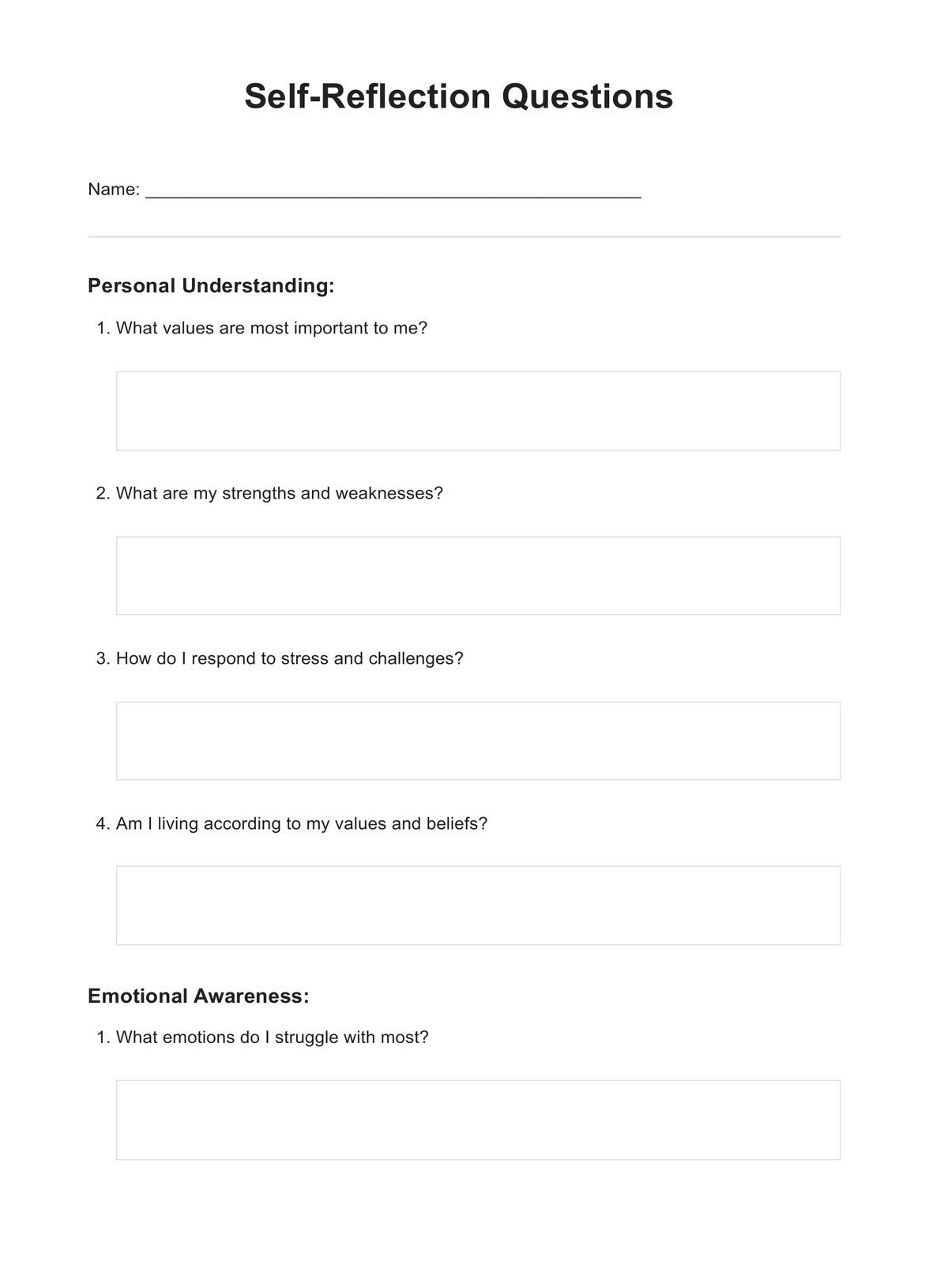A wide range of individuals and professionals uses self-reflection questions. They can be used by anyone looking to understand themselves better, identify areas for personal growth, or improve their emotional intelligence. In addition, healthcare professionals like therapists, counselors, psychiatrists, and life coaches often use these questions to facilitate meaningful conversations with their clients and enhance the therapeutic process.

Self-reflection Questions
Discover Self-reflection Questions' power to enhance self-awareness, promote personal growth, and facilitate therapeutic dialogue. Download yours today!
Self-reflection Questions Template
Commonly asked questions
Self-reflection questions can be used at various times. They can be used at the beginning of therapy to understand clients' perceptions, feelings, and expectations. They are also useful for periodic check-ins throughout treatment. They can be used during transition or decision-making.
Self-reflection questions promote introspection, which is key to self-improvement. They help individuals better understand their thoughts, feelings, and behaviors. This heightened awareness can lead to more mindful decision-making and improved emotional regulation. Over time, answering these questions can stimulate personal growth and development by identifying areas of strength and weakness, setting personal goals, and devising strategies for improvement.
EHR and practice management software
Get started for free
*No credit card required
Free
$0/usd
Unlimited clients
Telehealth
1GB of storage
Client portal text
Automated billing and online payments











